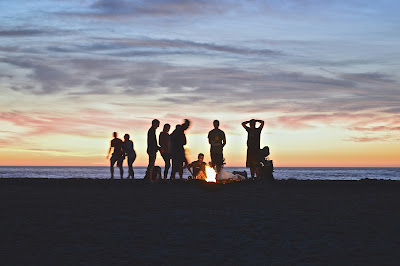A Deeper Look at Emerging Psychedelic Medicine Within the Sober & Recovery Community
Is Psychedelic Medicine Helpful or Harmful for the Sober/Recovery Community?
 |

An article from Sage Journal classifies addiction as "...a complex and challenging condition with many contributing factors" (2019). It is hard to say exactly why the behaviors of addiction arise, but it has been speculated that these individual choices become behavior alterations affected by physical and social environments. In turn, "...exposure to chronic psychosocial stressors and the physiological response of individuals to their external environment activates the brain’s neuroendocrine hypothalamic-pituitary-adrenal axis, with profound conditioning effects on behavior" (Eward et. al, 2019). Pretty vague, huh? One would question the ability to answer anything for certain when it comes down to the human brain.
For the sake of this article, we will use an example of sobriety in a standard sense: abstaining from anything mind-altering or that alters your natural state of perception. Recovery would indicate working a program of action or utilizing guidelines containing certain pillars that define a way of life that includes abstaining from drinking or using mind-altering substances.
Psychedelics and Addiction
First, let's address the elephant in the room: many sober and recovery communities/programs are completely against psychedelics because they alter perception, which would be the opposite of being sober and 'clear minded'. Alternatively, the psychedelic health community has been researching various approaches that address addiction through psychedelic medicine treatment and involve more than just abstaining or working a program. Some say psychedelics help subside initial cravings when 'getting sober', while others say consistent use expands the mind and assists in overcoming traumatic events. There is an entire holistic community throughout Southern California (Topanga, Malibu, Sherman Oaks, Encino, etc.) exploring ways to "heal" other than the standard OTC and pharmaceuticals; that is the beauty of living in a melting pot with various cultures and ancestral remedies for illnesses.
Now, psychedelic researchers are focusing on different areas of the brain and how they may be stimulated with the help of psychedelics as medicine; the goal is, trying to prove that some psychedelics may be able to 'reach' certain areas of the brain that other resources cannot.
And addiction treatments are far fewer and in between. Research from Frontier Psychology shares their latest findings, stating, “...Despite the limited current availability of effective treatments, there has been a growing body of evidence since the mid-20th century indicating the therapeutic effects of psychedelics in treating addiction including, the ‘classic psychedelics’; lysergic acid diethylamide (LSD), psilocybin, dimethyltryptamine (DMT) ayahuasca...in addition, there are the ‘non-classic psychedelics’; ketamine, 3,4-methylenedioxymethamphetamine (MDMA) and ibogaine (from the Iboga plant)”. Additionally, LSD has been scientifically proven to show a decrease in significant alcohol misuse when compared to placebo. Here is a thought-provoking excerpt from Frontiers in Psychiatry relating psychedelics to abstinence and Alcoholics Anonymous:
The Basis of Recovery Programs and Psychedelics

Is it possible that psychedelics can help aid in these recovery elements and/or eliminate the behavioral effects of addiction? Is psychedelic medicine able to address addiction independently or does it need the aid of a recovery-based program/blueprint? Research does not yet have a definite answer to any of these questions.
- Are psychedelics for addiction treatment something that could help equally as much as the alternatives and if so, are they being criminalized for ulterior motives?
- Are psychedelic companies pushing agendas similar to medical marijuana for extreme profit, or providing this fast-paced society another alternative way to "escape"? And/or, is psychedelic medicine a trial-and-error process that may help heal certain regions of the brain?
- What impact would the legalization of psychedelics have on the multi-billion dollar pharmaceutical company or the sick-care system throughout the U.S.?
- Are psychedelics a helpful substitute for abstaining from drugs and alcohol or is this a case-by-case basis?
What are the intentions behind the healthcare system throughout the United States?
And down the rabbit hole, we go.
The bottom line: psychedelics have been proven to be 'helpful' but we do not know enough about the human brain to make an absolute determination of exactly how to utilize them for addiction treatment and recovery. Often, addiction correlates from the need to escape or avoid certain feelings and circumstances. Psychedelics in relation to addiction and recovery should be subjective. This is a matter of per person per community; there are too many factors, including environmental biochemical and pre-existing conditions that make it hard to gauge anything definite, and one should proceed with caution, especially when encountering a life-and-death disease like addiction. As the recovery programs would say: more will be revealed.
Citations




Comments
Post a Comment